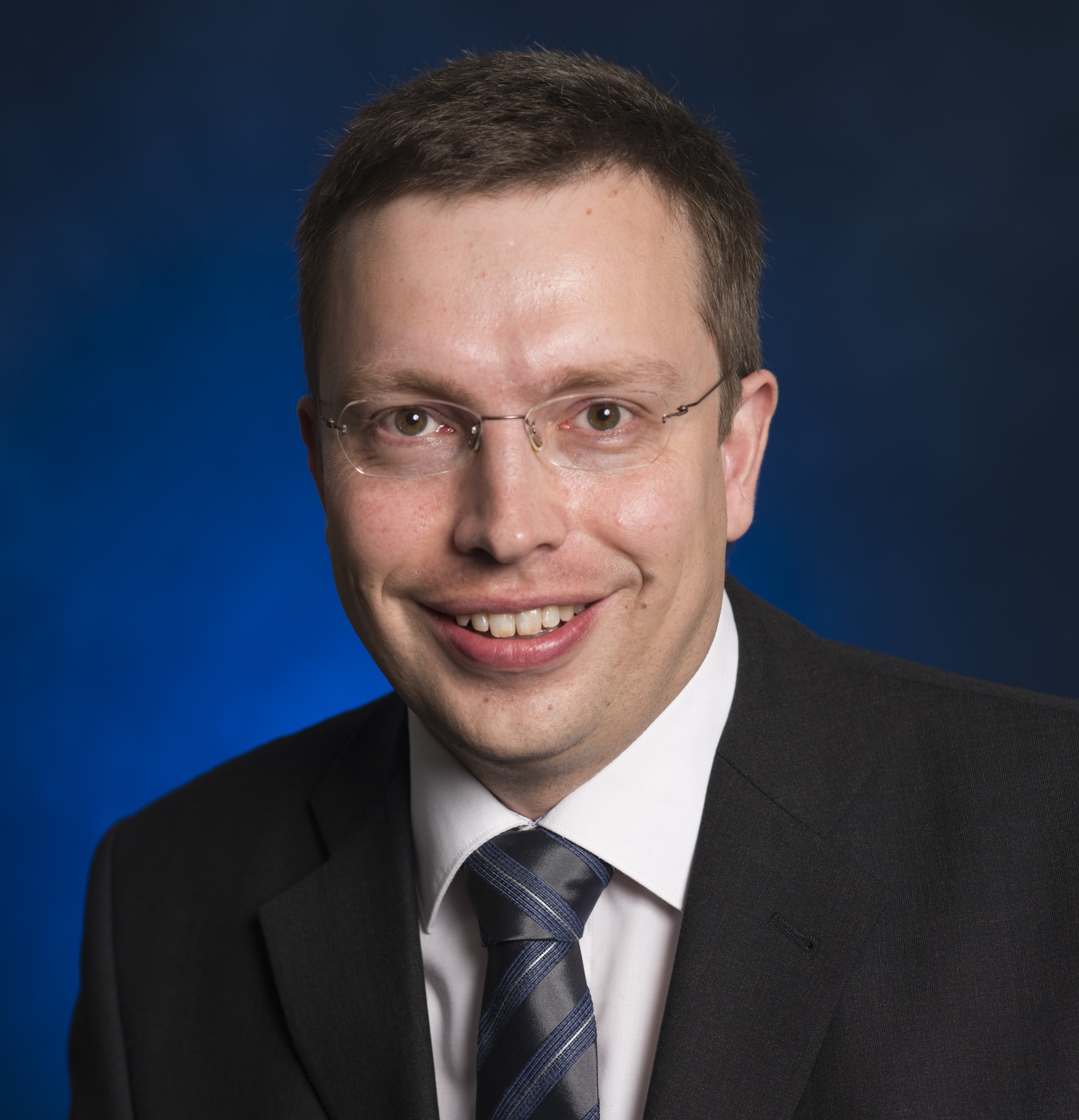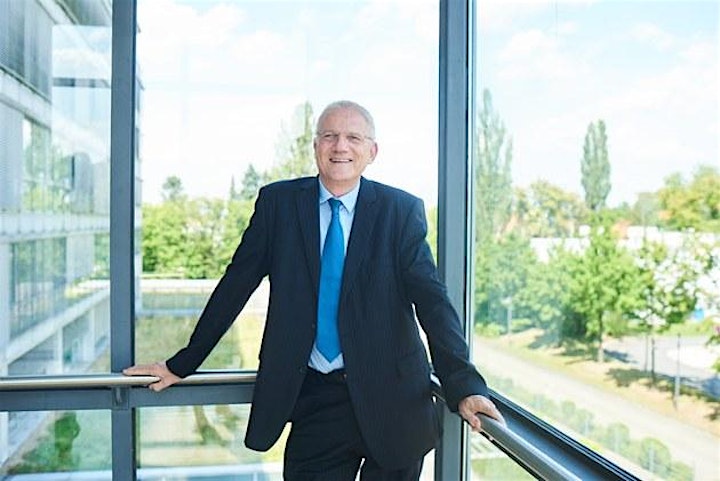
The Mature Workers in Organisations (MWOS) Virtual Symposium Series is hosted by CEPAR's Organisations and the Mature Workforce research stream, based at the Centre's Curtin University and University of Sydney nodes, with the aim of encouraging interaction between academic researchers from a broad range of disciplines as well as from industry and government.
Jump to:
Schedule
Please click on the titles below to view the abstracts and bios of speakers.
26 May (12-1pm AEST) - Older Women and the Australian Workplace: What Do They Want and What Do They Think of Their Jobs? - Philip Taylor (Federation Business School, Federation University, Australia)
10 June (at the Policy Dialogue on Mature Workers in Organisations) - Workplace Interventions to Support an Ageing Workforce: International Lessons and Evidence - Donald Truxillo (Department of Work and Employment Studies, Kemmy Business School, University of Limerick, UK)
30 June (2-3pm AWST) - How do I get organisations to take part in my intervention research (and what happens if they say yes)? Learnings from two studies on intergenerational learning - Fabiola Gerpott (WHU Otto Beisheim School of Management, Germany)
2 December (4-5pm AWST) - Strength and Vulnerability: Indirect Effects of Age on Occupational Wellbeing through Emotion Regulation and Physiological Disease - Hannes Zacher (Institute of Psychology, Wilhelm Wundt, Leipzig University, Germany)
23 February (3-4pm AWST) - Age Differentiated Leadership – A New Approach for Leading the Ageing Workforce and Age-Diverse Teams - Jurgen Wegge (TU Dresden, Germany)
27 April (1-2pm AWST) - Startup @ AnyAge: The Paradoxes of Mature-Age Entrepreneurship - Carol Kulik (University of South Australia)
12 October (2-3pm AWST) - Successful Ageing at Work: The Role of Job Crafting - Dorien Kooij (Tilburg University)
Abstracts and Recordings
Older Women and the Australian Workplace: What Do They Want and What Do They Think of Their Jobs?
Speaker: Professor Philip Taylor, Federation Business School, Federation University Australia
Date: Wednesday, 26 May 2021
Time: 12-1 PM (AEST) (click here for other time zones)
Abstract: This presentation concerns older women’s experiences of work and the factors affecting their labour market engagement, drawing from findings of the Australian Research Council (ARC) funded ‘Retiring women’ study . Evidence from quantitative surveys of Australian older working women is used to challenge myths concerning their employment and to demonstrate the complexity of their engagement with the labour market. It is concluded that most women like their jobs, viewing their working environments as benign, but the findings also highlight the problematical nature of devising effective public policy and advocacy for ‘older workers’.

Recording
Workplace interventions to support an ageing workforce: International lessons and evidence
Date: 10 June 2021 at the Policy Dialogue on Mature Workers in Organisations
Speaker: Donald Truxillo, CEPAR Associate Investigator, Professor, Department of Work and Employment Studies, Kemmy Business School, University of Limerick, UK
The following presentation was presented by CEPAR Associate Investigator Professor Donald Truxillo (University of Limerick) at the recent Policy Dialogue on Mature Workers in Organisations and may be of interest. To view/download the presentation, please click on the presentation title below.
Workplace interventions to support an ageing workforce: International lessons and evidence
Recording
How do I get organisations to take part in my intervention research (and what happens if they say yes)? Learnings from two studies on intergenerational learning
Speaker: Professor Fabiola Gerpott, CEPAR Associate Investigator, WHU Otto Beisheim School of Management, Germany
Date: Wednesday, 30 June 2021
Time: 2-3 PM (AWST) (click here for other time zones)
Abstract: To establish work practice and policies that promote mature workers’ successful ageing and foster intergenerational knowledge learning in organisations, scholars often want to directly test interventions such as implementing age-specific HR practices, conducting training programs, changing work design, or adapting recruitment practices. At least theoretically, organisations have become increasingly interested in evidence-based management approaches. However, practically scholars often experience a large gap between the rigorous design they want to implement to study the effectiveness of interventions and the expectations and requirements of organisations. In this talk, I present findings from two studies on intergenerational learning in which we collected data by training an age-diverse group of employees. In addition to presenting our results, I also share strategies we used to get organisations on board and discuss challenges that scholars may face when collecting data “in the wild”.
Dr. Fabiola H. Gerpott holds the Chair of Leadership at the WHU – Otto Beisheim School of Management, a leading German business. Since 2018, she is an Associate Investigator at CEPAR supporting the research stream “Organisations and the Mature Workforce”.
Before working fulltime in academia, she was employed in the strategic HR department of Daimler AG, an automotive company. During that time, she evaluated pilot interventions to foster intergenerational learning and age-specific HR accommodation practices. Fabiola then graduated from a Double PhD program in Organizational Psychology and Business Administration. She continued her career as an assistant professor in Amsterdam and Berlin. In 2019, she became a tenured professor at WHU. Today, Fabiola studies knowledge exchange between age-diverse co-workers and diversity management initiatives. Her work is published in outlets such as the Academy of Management Journal or the Journal of Applied Psychology. She is highly passionate to make her research accessible to practice and constantly engages in collaborations with organisations.
Recording
Strength and Vulnerability: Indirect Effects of Age on Occupational Wellbeing through Emotion Regulation and Physiological Disease
Speaker: Professor Hannes Zacher, CEPAR Associate Investigator, Institute of Psychology, Wilhelm Wundt, Leipzig University, Germany
Date: 2 December 2021
Time: 4pm AWST (click here for other time zones)
Abstract: The lifespan model of strength and vulnerability integration (SAVI) posits that development is accompanied by age-related improvements in emotion regulation and age-related reductions in physiological flexibility. Moreover, the model suggests that the experience of emotional stressors leads to greater declines in wellbeing among older as compared to younger adults. We test these core propositions of the SAVI model in the work context by examining experienced incivility as a moderator of the indirect effects of employee age on two indicators of occupational wellbeing (i.e., emotional engagement and exhaustion) through emotion regulation and physiological disease. Longitudinal survey data were collected from n = 784 employees across three time points, spanning five months. Consistent with hypotheses, results showed that age had indirect effects on wellbeing outcomes through emotion regulation and physiological disease. In addition, the negative indirect effect of age on emotional exhaustion through emotion regulation was weaker when experienced incivility was high (vs. low). These findings of this study provide partial support for propositions of the SAVI model in the work context and yield several implications for theory development and practice regarding age and work.
 Dr. Hannes Zacher is a Professor of Work and Organizational Psychology at the Institute of Psychology – Wilhelm Wundt, Leipzig University, Germany. He earned his Ph.D. from the University of Giessen in 2009 and subsequently worked in academic positions in Australia and the Netherlands. In his research program, he investigates aging at work and career development, occupational health and well-being, as well as proactive and adaptive employee behavior. Across these research agendas, he employs multiple methodologies, including longitudinal surveys, experience sampling studies, and experiments. His research is well supported through competitive grants and industry funding, including current projects on the role of work for the development of civilization diseases (Volkswagen Foundation) and on idle time at work (German Research Foundation). He has published over 150 articles in peer-reviewed journals, such as American Psychologist, Journal of Applied Psychology, Journal of Organizational Behavior, and Psychology and Aging. He also serves on a number of national and international journal editorial boards.
Dr. Hannes Zacher is a Professor of Work and Organizational Psychology at the Institute of Psychology – Wilhelm Wundt, Leipzig University, Germany. He earned his Ph.D. from the University of Giessen in 2009 and subsequently worked in academic positions in Australia and the Netherlands. In his research program, he investigates aging at work and career development, occupational health and well-being, as well as proactive and adaptive employee behavior. Across these research agendas, he employs multiple methodologies, including longitudinal surveys, experience sampling studies, and experiments. His research is well supported through competitive grants and industry funding, including current projects on the role of work for the development of civilization diseases (Volkswagen Foundation) and on idle time at work (German Research Foundation). He has published over 150 articles in peer-reviewed journals, such as American Psychologist, Journal of Applied Psychology, Journal of Organizational Behavior, and Psychology and Aging. He also serves on a number of national and international journal editorial boards.
Recording
Age Differentiated Leadership – A New Approach for Leading the Ageing Workforce and Age-Diverse Teams
Speaker: Jürgen Wegge (TU Dresden, Germany)
Date: 23 February 2022,3.00 – 4.00 PM Australian Western Standard Time (AWST) Time Zone (click here for other time zones)
Dr. Jürgen Wegge is full professor of Work and Organisational Psychology at the TU Dresden since 2007 (Ph.D 1994 and "habilitation" 2003 from the university of Dortmund). He was the president of the German Work-, Organizational- and Business Psychologist organized in the German Psychological Society (DGPs) from 2010 to 2012 and is a fellow of IAAP, EAWOP, and several other psychological associations such as the Society for Work Science (GFA). He serves on the editorial boards of several scientific journals, starting in October 2021 he is editor in chief of the German Journal of Human Resource Management (GHRM). His research interests are in the field of work motivation, leadership, demographic change, occupational health and diversity in organizations. He has published five books, seven special issues, 105 journal articles and 115 book chapters related to these topics. His work was published, for example, in JAP, AMJ, JMS, JOHP, JBV, GOM, BJM, IJNS, JOOP, EJWOP, JPP, HCI, Ergonomics, Work & Stress, Stress & Health, APIR, SGR, EJSP and Motivation & Emotion. Since June 2016 he is the chair of the Center for Demography and Diversity (CDD) at TU Dresden.
Recording
Startup @ AnyAge: The Paradoxes of Mature-Age Entrepreneurship
Speaker: Carol Kulik (University of South Australia)
Date: 27 April, 1-2pm Australian Western Standard Time (AWST) Time Zone (click here for other time zones)
Abstract: Older people have a wealth of knowledge and experience that they might bring to entrepreneurial endeavours, but entrepreneurship is usually presented as a young person’s game. We collaborated with a local city council to support mature-age individuals to engage in entrepreneurial activity. Based on the Theory of Planned Behaviour, we anticipated that low perceived self-efficacy and age-related norms would constrain older people’s entrepreneurial intentions and actions. However, we found that mature-age entrepreneurship is characterised by resource, barrier, and ownership paradoxes better understood through a Socioemotional Selectivity Theory lens. Our experience suggests that deriving value from mature-age entrepreneurs will require unique support systems, distinct from those used to develop younger entrepreneurs. Carol’s presentation is simultaneously a cautionary tale for researchers and an inspirational story of mature-age entrepreneurial potential.
Carol T. Kulik is a Bradley Distinguished Professor at the University of South Australia and a senior researcher at UniSA’s Centre for Workplace Excellence. Her research focuses on workplace inclusion and organisational fairness; she helps organisations develop employee-centred practices that address the needs of a diversity workforce. Carol is an elected fellow of the Society for Industrial and Organizational Psychology, the Academy of Management (AOM), and the Academy of the Social Sciences in Australia. She has served as president of AOM (the first president based outside North America) and as Associate Editor for the Academy of Management Journal and the Journal of Management. Her current projects are investigating strategies to close the gender pay gap, reduce stereotype threat among mature-age workers, and motivate organisations to become front-runners on social issues.
Recording
Abstract: Since workforces are ageing worldwide, organisations are challenged to maintain the ability and motivation to continue working of their older workers. I call this successful ageing at work. In my talk I will propose that a self-regulation process aimed at continuously maintaining person-job fit is crucial for successful ageing at work. I will zoom in on job crafting behaviour as a particular example of self-regulation behaviour and discuss a number of studies that show the role of job crafting in successful ageing at work and how to stimulate job crafting behaviour in organisations. I will also discuss future research directions that I would like to work on.
 Dorien (T.A.M.) Kooij is Professor of Human Resource Studies at the Department of Human Resource Studies of Tilburg University, the Netherlands. She graduated with distinction in Business Economics at the University of Amsterdam. She worked about three years as HR practitioner in various jobs before she started with her Ph.D. project entitled “Motivating older workers: a lifespan perspective on the role of perceived HR practices” at the VU University Amsterdam. Her Ph.D. thesis was awarded with the WAOP Dissertation Award 2010 and the HRM Network Best Dissertation Award 2011. Her research focuses on ageing at work, and in particular on HR practices for older workers, on how work motivation changes with ageing, on future time perspective, and on job crafting. In 2014 she received an NWO-VENI grant for the project: “Retaining older workers: the role of job crafting”. She has published in international peer reviewed journals such as Journal of Applied Psychology, Journal of Organizational Behavior, Work & Stress, and Psychology and Aging.
Dorien (T.A.M.) Kooij is Professor of Human Resource Studies at the Department of Human Resource Studies of Tilburg University, the Netherlands. She graduated with distinction in Business Economics at the University of Amsterdam. She worked about three years as HR practitioner in various jobs before she started with her Ph.D. project entitled “Motivating older workers: a lifespan perspective on the role of perceived HR practices” at the VU University Amsterdam. Her Ph.D. thesis was awarded with the WAOP Dissertation Award 2010 and the HRM Network Best Dissertation Award 2011. Her research focuses on ageing at work, and in particular on HR practices for older workers, on how work motivation changes with ageing, on future time perspective, and on job crafting. In 2014 she received an NWO-VENI grant for the project: “Retaining older workers: the role of job crafting”. She has published in international peer reviewed journals such as Journal of Applied Psychology, Journal of Organizational Behavior, Work & Stress, and Psychology and Aging.
Recording
| CLICK HERE TO VIEW THE MATURE WORKER SPOTLIGHT |
|---|
Contact: Please contact Alison Williams and Leah Zoszak if you would like to be added to the Mature Workforce Online Symposium Seminar Series mailing list.
General enquiries: cepar@unsw.edu.au



